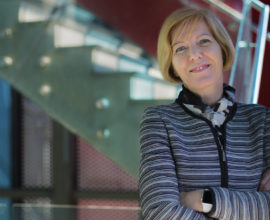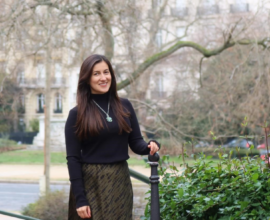Didier Gaffinel
A steadfast rise through the ranks
![]() Reading Time: 9 minutes
Reading Time: 9 minutes
Deputy General Manager, Crédit Agricole CIB
Interview conducted in 2022. Didier Gaffinel is currently still Deputy Chief Executive Officer at Crédit Agricole CIB in Paris.
In 2022, Didier Gaffinel celebrates 30 years of service at Crédit Agricole. After 16 years of investment banking and its notoriously strenuous regime, he later transitioned to managerial positions, inheriting the huge responsibilities that come with heading up divisions of over 800 employees. What lies behind this enduring lifespan? Didier puts it down to his drive and competitive spirit as well as his ability to sense when his physical resources run dry.
In these times of professional hyper-mobility, such a steady career can seem out of place. But there is a strong sense of corporate loyalty that emanates from Didier when he retraces his steps, one that has become scarce. He is grateful to a group that has enabled him to progress and even reinvent himself more than once. He has led emblematic deals for well-known French companies, such as re-nationalising the troubled Alstom engineering group, or privatising Gaz de France.
But his commitment to the company does not prevent him from sketching out his vision of a post-Crédit Agricole life… which might entail trading in his suit and tie for a pair of overalls and rubber boots.
Let’s meet a man who strives to be - in his own words - “a nice guy who stands by his convictions”.
What are the values that you were brought up with and still live by today?
I grew up in Paris in a relatively traditional family setting. My father was in industry; back in the 80s by the end of his career he was deputy manager of a subsidiary of what was then the huge Thomson group. His business was international, so he was often away. My parents’ vision for me was that I become an engineer and then do an MBA. In their mind, it was the best route for opening the doors to corporate success. However, I saw how some of my friends in engineering schools were struggling and it put me off. Therefore, against my parents’ advice, I opted for an HEC preparatory class and studied at the Lycée Pasteur in Neuilly sur Seine.
Respect and fairness as well as a sense of emulation are values that my family shares. They were part of my cultural upbringing, and, I believe, my genetic make-up. I think they are important personality traits to develop in order to succeed in my field. Investment banking requires you to have a fierce desire to succeed by beating the competition. However, integrity and honesty are also key in the banking system because they are essential to win your clients’ trust. We often forget that “credit” derives from the latin word “credere” which means to trust.
What is your best memory from your time at Audencia?
In 1984, when I joined Audencia, it was still known as “ESCNA”. It was the first time I’d left home, so it was a bit of a shock as well as an empowering experience. I met some great people, some of whom I still count among my best friends. We try to meet up annually for a “class of ’87 reunion”.
Back in the 80s, the school used to send all its students to Ohio State University and it was absolutely special. The spring quarter I spent there was one of the highlights of my Audencia experience. Along with a few friends, we finished our stay with a 2-month road trip from California and Death Valley, to Disney World, New Orleans and New York. For someone who had never ventured much outside Paris, it was quite an adventure!
What steps did you take at the beginning of your career?
At Audencia, I chose the finance major because this is where I felt more at ease: figures never lie. After that, I completed my training with the DECF accounting diploma.
I moved to London where I worked as an equity analyst for HSBC. Taking my first steps in finance at the heart of “The City” was exhilarating to say the least. I only wish that I’d met more British people instead of sticking with the French community.
In Paris, influenced by my father, I joined the financial department of Elf Aquitaine, a large industrial company where I was assistant treasury manager for 2½ years. Having experienced both the banking and the corporate side, I decided that my next move would be into investment banking, which I saw as an opportunity to deal with both worlds. I joined Crédit Agricole’s first investment banking business (CA CIB). That was in 1992… so I’m looking forward to blowing out 30 candles on a big cake at the office very soon!
What sort of job satisfaction did you get working in investment banking?
I went into this field for the fun and the thrill of it. Like every newbie, I started by crunching numbers, which, to be honest, I enjoyed a lot. However, it’s when I started meeting with clients that I discovered the exciting part of the job. As I gained experience and climbed the ladder, I oversaw bigger parts of the transactions which I discussed with CFOs and CEOs. It set this virtuous circle in motion: I would bring them a specific expertise, and in return, I would learn a lot from these smart people. I started on the debt financing side, and notably LBO financing which Crédit Agricole pioneered in Europe. I moved to Mergers and Acquisitions, and, from 1998 to 2011, the equity capital market.
What I enjoyed most was that each deal started with a blank sheet of paper. The challenge is to come up with ideas of deals that would be attractive for clients and then try to get the mandate. After that comes the execution phase which is never without a multitude of hurdles. Each transaction is a journey that demands resilience and spending a lot of time with shareholders, senior management, and equity investors all over the world. Nevertheless, completion brings a sense of reward that makes it all worth it.
What is your proudest deal?
In 2005, the privatisation of Gaz de France was a high-profile transaction and we were acting as advisors to the French State. I had weekly meetings with the client’s top management at the Ministry of Finance, and I set up the steering committee to manage the process which took 6 months. However, my proudest deal is not necessarily the biggest one, but probably the IPO of Olympic Lyonnais. It was fascinating to scrutinise the underlying business model of a football club, and to work on such an iconic brand.
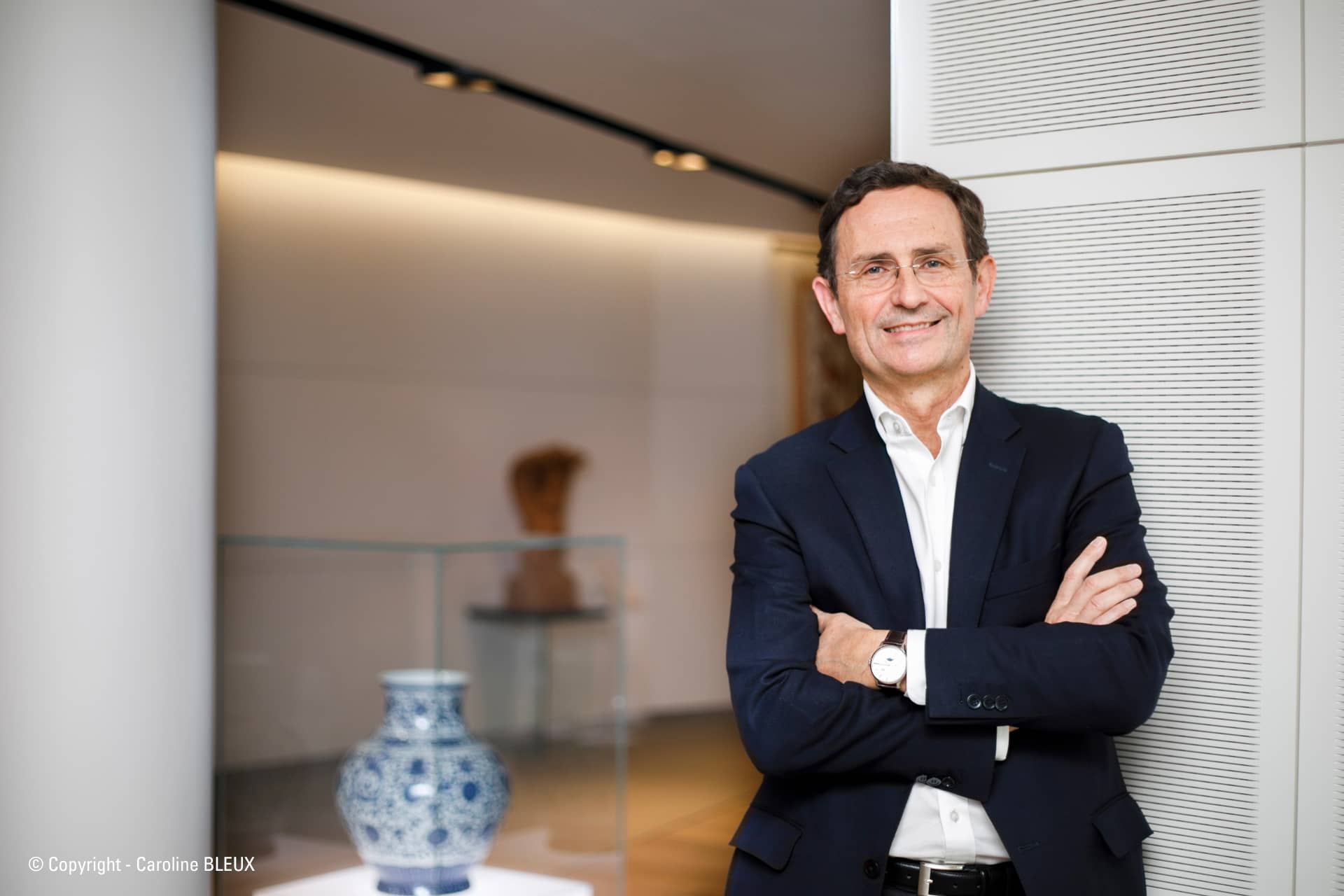
What was your work routine at the time?
I am not going to sugar-coat it: you don’t succeed in this field without long days and hard work. It probably wasn’t as bad as in the large US banks such as Goldman Sachs and Morgan Stanley but I was routinely working 12-14 hours a day. Sustaining this regime all year long and for over 15 years is taxing and tricky to combine with a rich family life. But the good vibes you get when your deal goes through have kept me going. You get high on it, just like with sport.
There were a few times when I caught myself just before my health was at risk and I had to slow down. In 2005, I took a management position and progressively delegated the heavy work of building spreadsheets and pitches to more junior colleagues.
Your position now is very different. What aspect do you find most fulfilling?
In 2011, I moved to coverage where my role was no longer to originate and execute transactions but to look after a dozen clients at a time, mainly in the luxury sector (LVMH, PPR) and retail (Casino). My responsibility was to understand their needs, their strategy, to be relevant and to develop relationships bringing the business line back at the right time. And when they granted the bank a mandate for a deal, I passed it on to another team who would execute it. It was much more about soft skills.
As for my current position, it’s purely a management one. I head up global coverage and investment banking with 800 employees across 30 countries. As I am originally a field man, recruiting and developing the teams was quite a learning curve.
With the other members of the executive committee, my aim is to design what will be the CA CIB of tomorrow. What I find exciting is to grow the business by opening new frontiers. One particularly interesting new line of business is advising and financing energy transition. CA CIB has been a pioneer in sustainable finance. We are a global leader in issuing green bonds and advising clients all over the world. We have the financial means to develop this activity and to make a significant impact and that, for me, is rewarding.
What is your strategy to unwind from the pressure of work?
Sport has been a big part of my life ever since I was young and I still exercise every weekend. It’s my favourite outlet for stress, and my way of escaping. I used to run semi-marathons and play competition tennis, but once I hit 50, I moved to gentler sports, namely cycling. I love golf… I just wish it didn’t take so long to play a single round!
Is there any aspect of your career story that you would be tempted to rewrite?
I wouldn’t change a thing and I certainly don’t regret having stayed with the same company all these years. What matters is to experiment with different roles, especially at the beginning of your career, so you can enrich your skills and reinvent yourself. I have never spent more than 6 or 7 years in the same role, and I am grateful for the opportunities that the CA group offered me.
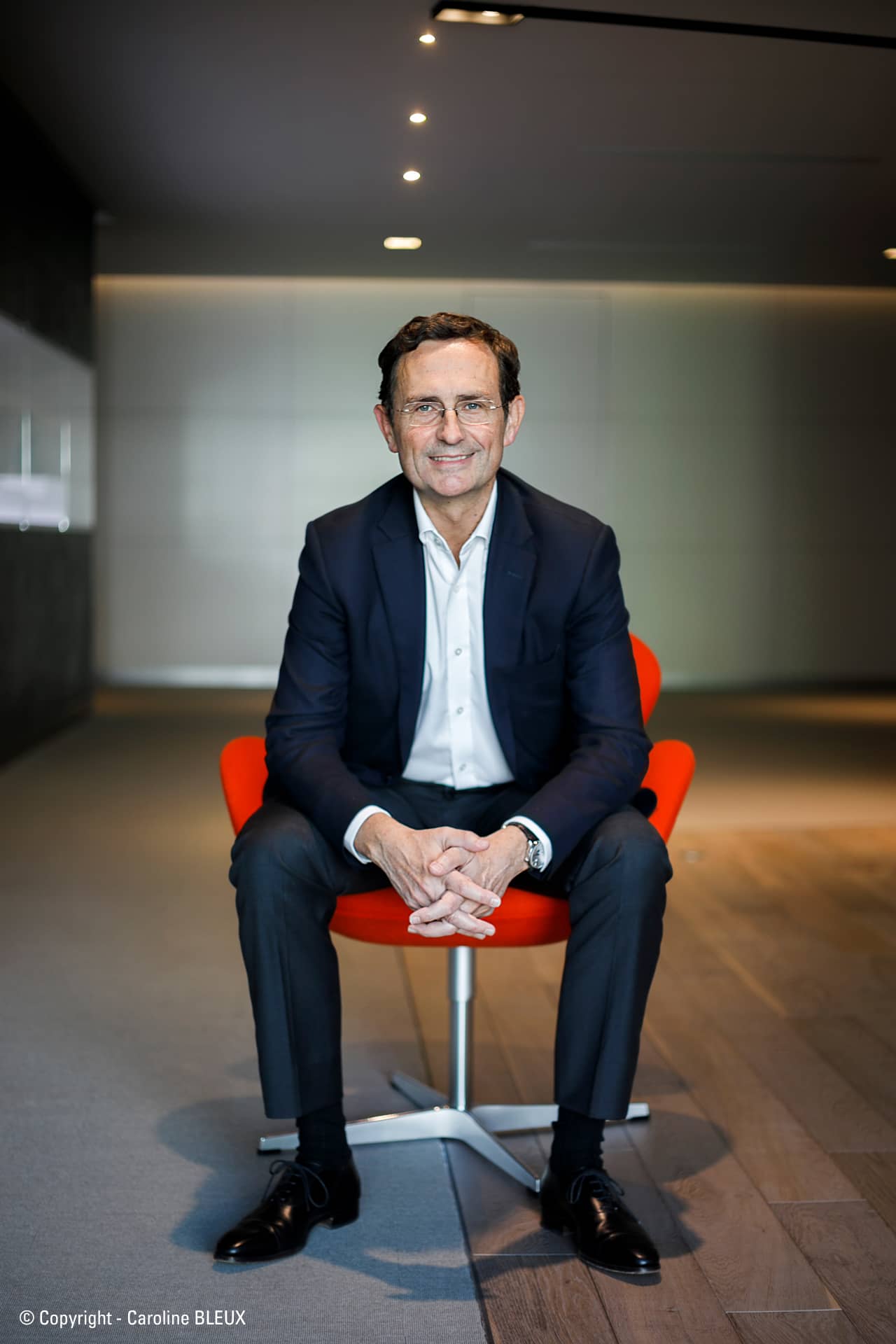
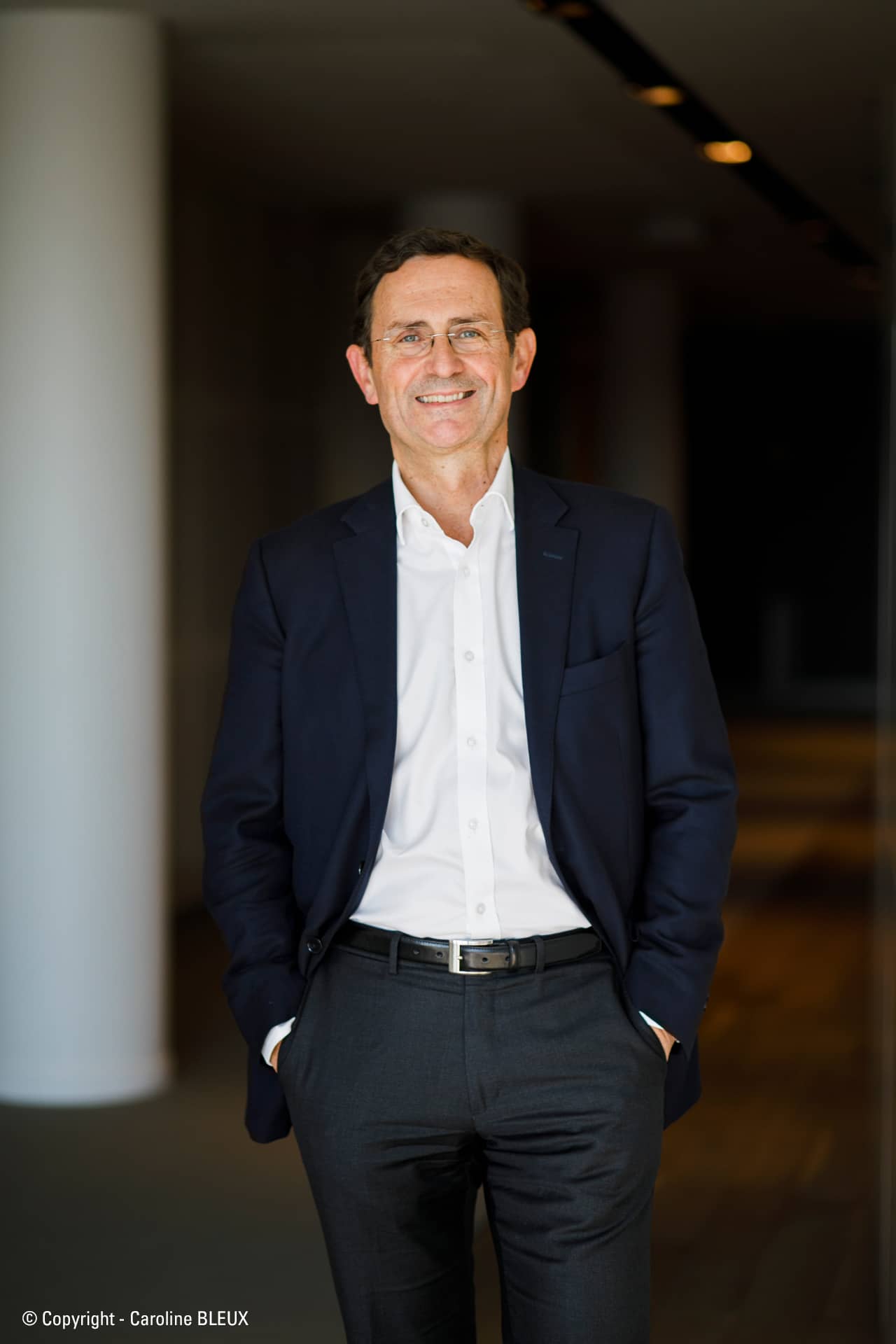
What connection do you have with Audencia today?
I have never completely cut the cord. Every day I feel grateful for what the school has brought to me, so I naturally want to give back. I used to represent and promote the Crédit Agricole group in various student forums at Audencia, and I have taught a few classes focusing on business cases. Each time I can, I try to give young graduates a little boost.
What I appreciate about Audencians is that we share a sense of pride without any arrogance. We know that the organisation is not at the very top of the ranking board, and this gives us a sort of freedom. I remember that even back when I was a student, professors encouraged us with the “do dare!” watchword. So, my main advice to graduates is to be proud of your diploma and don’t feel intimidated by others who graduated from allegedly more prestigious institutions. If I take my case as an example, I can assure you that my education has never put me at a disadvantage, quite the opposite!
Have you started to imagine what your post-Crédit Agricole life might be like?
Yes I have. I will probably do some part-time teaching. I would also love to launch my own business around wine, one of my longstanding interests. Some of the deals I have most enjoyed overseeing at the Crédit Agricole were for wine clients, such as the IPO of Champagnes Laurent Perrier. And I have been investing in some start-ups in the wine industry. This passion runs in the family as some of my ancestors were in the wine and shipping business back in the 19th century. Based in Sète in the South of France, they were importing wood from Eastern Europe, transforming it into barrels and shipping them to America. And my family has owned vineyards for several generations. One of my ultimate dreams would be to have my own small vineyard. But rather than diving headfirst into it, I would enrol in an MBA in the wine business. Because I am well aware that it’s one thing to be a wine connoisseur and understand the business model, and it’s another to know how to grow the grapes and produce a product I can be proud of.
We should feel so privileged that if our health allows us, we can nowadays start a new life at 60-65 years old. For the next 20 years, I can see myself as a grandfather-entrepreneur!
In a sentence or two, what are your predictions for the global economy?
I have no doubt that the global economy will bounce back, but I am also acutely aware that this crisis has increased the inequalities, between rich and poor countries, ones which are fairly safe and ones without the safety net of a public health system. So we have a bumpy road ahead, but the future is bright. Call me a realistic optimist!
Tell us about one thing you are looking forward to this week?
Paradoxically, the extraordinary work conditions we have adapted to since the beginning of the pandemic have multiplied the opportunities for “travel”, albeit in a virtual form. I used to jump on a plane once or twice a month. I am now “visiting” clients every day on all continents. This morning, sitting in my campus in Montrouge near Paris I was chatting to clients in Japan and comparing our experiences of how the health crisis has been managed in our respective countries. I always look forward to these opportunities to further my understanding of other cultures. These windows of escapism are what I will remember from this period.
